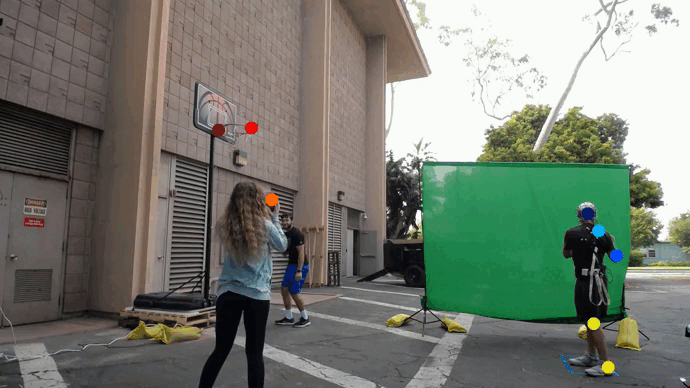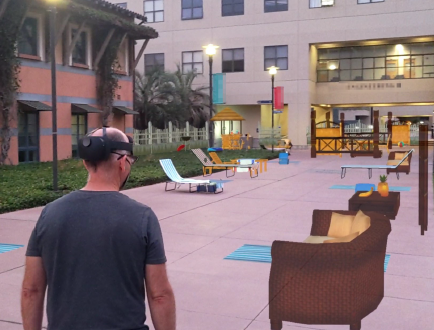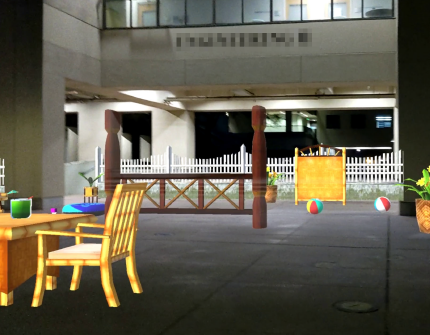How can we understand cognition and brain function in real-world tasks and activities executed outside the lab?
Our current understanding of the fundamental aspects of human cognition is largely based on tightly controlled and rigorous laboratory experiments designed to manipulate and measure different components of perception, attention, and memory.

The problem is that many real-world tasks are done during physically active states (walking, running, climbing, etc.), outdoors, and in a variety of environmental conditions that can perturb one’s physiological state and we know that these states change how information is processed in the human brain. We are interested in understanding cognition and behavior outside the lab when engaged in a variety of real-world activities.
Pictured: A participant shooting a free-throw during a combined basketball and EEG project.
The work in this theme is inspired by our work on Global States, the results of which made it abundantly clear that the simple act of having people engage in locomotive activity alters patterns of brain activity associated with cognition. This theme is the newest line of work and includes exercise, sports performance, and wide-area outdoor augmented reality.
Pictured: A participant navigating part of an augmented outdoor environment in a daytime condition (left), and part of an augmented environment during a nighttime condition (right).

